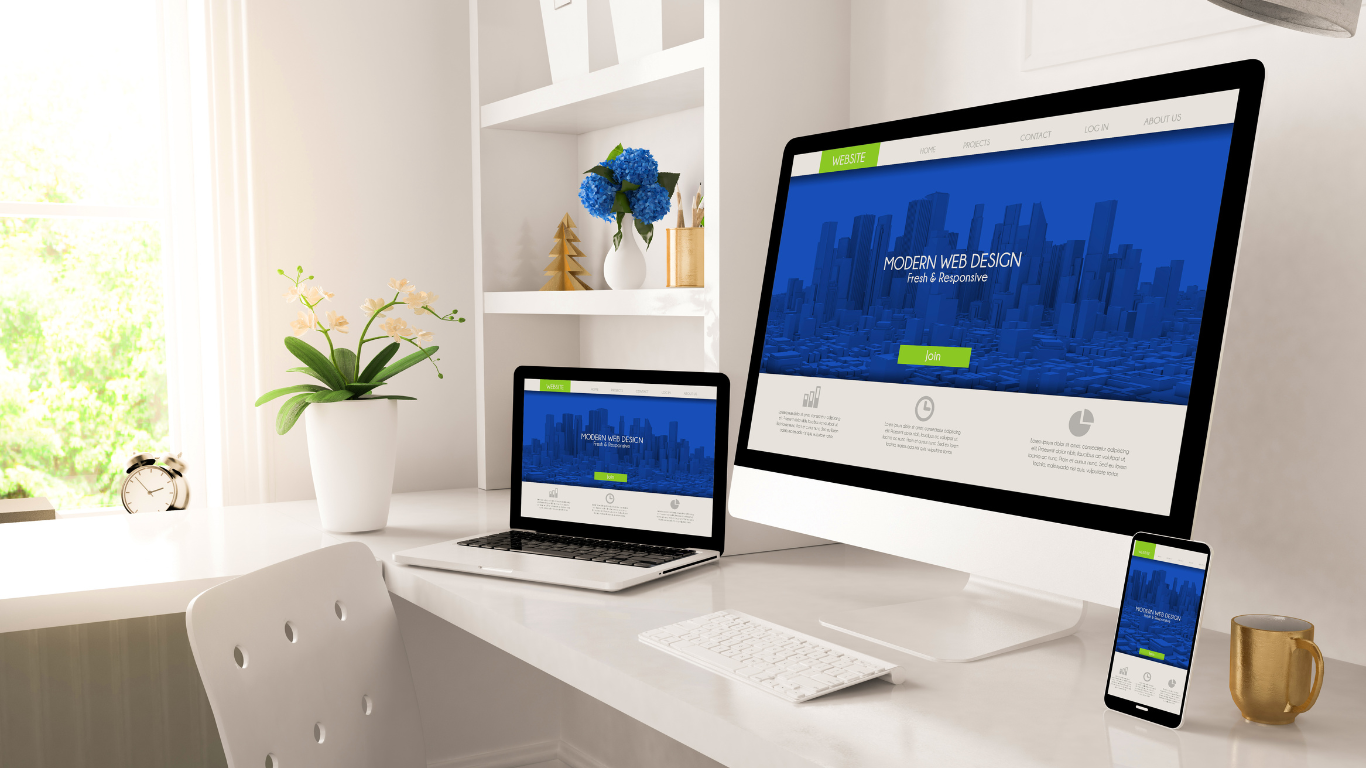
How to Work as an Insurance Agent from Home Successfully
To work as an insurance agent from home, there are some critical steps you need to take. Getting licensed, interviewing for the job, and setting up your remote workspace for success requires careful planning and strategic execution. This blog post will guide you through essential aspects such as landing your dream job in the insurance industry, high-speed internet requirements, creating an undistracted environment at home, and selecting essential equipment.
Table Of Contents:
- Before You Can Even Work As An Insurance Agent From Home: Get Licensed!
- Get Your Resume Ready For Remote Job Interviews
- Skills and Qualifications Needed for Remote Work
- The Best Place to Find Remote Agent Jobs
- How to Ace Your Remote Insurance Agent Interview
- Setting Up Your Remote Workspace for Success
- Maintaining Sanity While Working Remotely
- Budgeting for Your Home Office Setup
- Setting Boundaries with Roommates and Loved Ones
- FAQs in Relation to Work as an Insurance Agent From Home
- Conclusion
Before You Can Even Work As An Insurance Agent From Home: Get Licensed!
Becoming a work-from-home insurance agent starts with getting licensed to sell insurance in your state. Each state has its own licensing requirements. You’ll need to take a course and pass the exam for each type of insurance you want to sell. But don’t worry! The exams aren’t too difficult if you study beforehand. And once you’re licensed, the possibilities are endless!
Tips:
- Check your state’s requirements for licensing.
- Study hard before taking the exam.
- If possible, get licensed in multiple types of insurance to expand your options.
Get Your Resume Ready For Remote Job Interviews
Your resume is the first thing that will catch a potential employer’s eye during the interview process. It’s important to make sure it stands out and highlights your skills as an independent insurance agent.
The Elements of a Great Insurance Agent Resume
- Contact Information: Make sure your name, phone number, email address, and LinkedIn profile are easily accessible at the top of your resume.
- Career Objective: This should be short and sweet – one or two sentences explaining what kind of job you’re looking for.
- Sales Experience: As an insurance agent, this is probably the most important section. Highlight any sales experience you have had in the past along with numbers that show how successful you were in selling policies or meeting quotas. Specify whether you sell health insurance or any other specific niche lines of business besides P&C insurance.
- Licenses & Certifications: Be sure to list all relevant licenses and certifications that prove your qualifications as an independent insurance agent. Including CIC, CPCU and CISR designations.
- Educational Background: List any degrees or certificates earned related to risk management, service, sales or finance fields which can help support better understanding on matters related to insurance.
Avoid These Common Mistakes
To ensure that your resume doesn’t get tossed aside by potential employers, here are some common mistakes people make when writing their resumes:
- Making spelling errors – proofread several times before submitting!
- Focusing too much on irrelevant experiences – keep it brief yet informative!
- Omitting quantifiable achievements – make sure to highlight your successes in numbers!
- Using too much jargon or buzzwords – keep it simple and understandable for all readers.
Remember, as an independent insurance agent looking for remote work opportunities, highlighting your ability to work independently in the insurance industry is key!
If you’re still unsure about how to format your resume properly or want more information on what employers are looking for in a potential employee, check out this video: These Resume Hacks Will Change Insurance Agents Forever. It’s always better to do some research before submitting anything.
Skills and Qualifications Needed for Remote Work
- Excellent communication skills: You’ll need to communicate effectively with clients via phone, email, or video conferencing.
- Sales experience: As an insurance agent, selling policies is your bread and butter. Make sure you have a proven track record in sales before applying for remote work positions. You may also be asked to demonstrate your coverage knowledge and explain how you intend to market yourself to potential clients to be able to sell insurance. Whether you sell health insurance or P&C insurance, know your stuff!
- Tech-savvy: Working from home means relying heavily on technology like CRM software and virtual meeting platforms. Make sure you’re comfortable using these tools before jumping into remote work. Also, be prepared to demonstrate your drive and ability to adapt by being able to use AI tools for insurance agents to help you prospect and sell.
The Best Place to Find Remote Agent Jobs
Luckily for aspiring remote agents, there are plenty of job boards out there. But if you want to work for an independent insurance agency who’s leading the way in hiring remote insurance staff, check out my own agency’s current listings and apply today.
How to Ace Your Remote Insurance Agent Interview
Transitioning to remote work can be tough, especially when it comes to interviews. Be ready to wow employers from the convenience of your own workspace with suitable prep and a positive attitude.
Showing You’re Prepared for an Online Interview
Preparation is key in any interview, but for remote agents, it’s even more important. Make sure your technical setup is flawless by testing your camera, microphone, and internet connection beforehand.
Answering Common Interview Questions for Insurance Agents
- “Why did you choose insurance as a career?” – Show your passion for the industry by discussing what drew you to it and how your interest has grown over time.
- “How do you handle rejection?” – Demonstrate resilience by sharing strategies you’ve used to overcome rejection while maintaining a positive attitude. Use clear examples.
- “Can you describe a time when you went above and beyond for a client?” – Highlight your customer service skills by sharing a story of how your extra effort led to positive outcomes for both the client and the agency.
Answering Interview Questions Specific to Remote Work
- “What is your plan for having an undistracted workspace where you can speak to clients privately and attend agency Zoom meetings?”
- “Tell me about a time when you completed an important project with little direct oversight.”
- “How do you plan to keep yourself on task throughout the day?”
Negotiating Salary Expectations Remotely
Negotiating salary remotely can be awkward, but remember, it’s just business. Be honest and flexible with your figures based on market standards or your previous earnings.
Being a successful remote insurance agent requires mastering technical aspects and traditional interviewing skills like communication and problem-solving. So invest time in thorough preparation before every virtual meeting to gear up for success.
 Essential Equipment for a Remote Insurance Agent
Essential Equipment for a Remote Insurance Agent
To work as an insurance agent from home, you’ll need the following:
- A reliable computer: Make sure your computer is up-to-date with all necessary software.
- High-speed internet connection: You don’t want to lose a potential client due to spotty Wi-Fi!
- Headset or microphone/speaker combo: For clear communication during phone or video calls.
- Dual Monitors: Two screens allow for efficient multitasking, such as viewing documents while participating in online meetings.
- Microphone: A good quality microphone ensures clear audio during virtual interactions with clients or team members.
- Ring Light: Proper lighting enhances your visibility during video calls, making it easier for others to see you clearly.
- CRM software: To keep track of clients and their policies. (This may very well be provided by your employer, once you get the job.)
In addition to these essentials, consider investing in ergonomic furniture like adjustable chairs and desks which provide comfort during long hours of work.
Remember, preparation is key when transitioning into remote work mode as an insurance agent. Ensure all technical setups are tested beforehand to save time and prevent potential hiccups down the line.
Setting Up Your Remote Workspace for Success
Being a remote insurance agent requires more than just industry knowledge. It also means creating a workspace that promotes productivity and efficiency. With the right setup, you can ensure smooth operations while working from home.
Creating an Undistracted Environment at Home
Creating an undistracted environment is key for successful work completion; therefore, set up in a quiet area with no interruptions and use noise-cancelling headphones if needed. This means setting up in a quiet area where interruptions are minimal or non-existent.
Importance of High-Speed Internet in Remote Insurance Work
A high-speed internet connection is crucial when conducting business remotely. From accessing client data to hosting video calls, having reliable internet ensures seamless communication with clients and colleagues alike.
Maintaining Sanity While Working Remotely
Working from your home as an insurance agent can be a significant shift from the traditional office environment. Taking care of your mental health is essential when transitioning from an office environment to working from home. One way to do this is by establishing routines that include frequent breaks and using tools such as stand-up desks.
Establishing Healthy Routines for Breaks
Taking regular breaks throughout your workday helps keep you focused and reduces stress levels. Try setting alarms every hour or so to remind yourself to stand up, stretch, or even go for a short walk around the block.
Benefits of Stand-Up Desks in Remote Work
Research shows that prolonged sitting can lead to health issues like obesity. A standing desk encourages movement throughout your day which aids in maintaining good posture while reducing these risks.
Building Support Networks Outside Work
No man is an island – especially when working from home. Building support networks outside work can help you feel connected despite physical distance from colleagues. Join online communities related specifically towards remote workers or insurance agents like Agents Growth Academy where you’ll find others who understand what you’re going through.
In addition to providing emotional support during challenging times, these networks often share useful tips on managing workload effectively at home without feeling overwhelmed.
The transition into becoming a successful remote insurance agent isn’t always easy but with some careful planning and attention towards maintaining sanity amidst all changes – it’s definitely achievable.
Budgeting for Your Home Office Setup
As a remote insurance agent, investing in the right equipment is crucial for your success. The setup of your home office can significantly impact your productivity and efficiency. It’s essential to allocate an appropriate budget towards buying new computers, upgrading existing ones, or purchasing quality recording devices.
Cost Considerations When Buying New Computers
The first thing to consider when setting up your office at home is which computer system makes the most sense. A high-speed laptop or desktop with sufficient memory and processing power will ensure smooth operations. You might want to check out PCMag’s list of best business laptops for some great options within different price ranges.
Upgrading Existing Equipment vs Buying New
If you already have a personal computer at home that isn’t too old, it may be more cost-effective to upgrade it rather than buying a new one altogether. Swapping out the RAM or exchanging an HDD for a more modern SSD can significantly improve performance without requiring you to shell out the cash for a totally new computer.
Importance of Quality Recording Devices
In addition to computers, other necessary equipment includes good-quality microphones and cameras for video conferencing purposes – after all, clear communication is key in our line of work. While these don’t necessarily have to break the bank, they should be reliable enough not to compromise on audio-visual quality during client meetings or team calls. You can find some great options for microphones and cameras on TechRadar’s list of best webcams.
Don’t forget about smaller but equally important items like comfortable chairs and desks that support long hours of sitting down without compromising posture. Ergonomic keyboards and mice reduce strain on wrists and hands over time. All of these contribute towards creating a conducive working environment where agents can focus solely on their tasks at hand instead of worrying about discomfort caused by inadequate furniture or equipment.
Investing in a well-equipped workspace helps boost productivity and increase revenue growth, so make sure to invest wisely.
Key Takeaways:
- Invest in quality equipment to improve productivity and efficiency.
- Budget appropriately for computers, microphones, cameras, chairs, desks and ergonomic keyboards that support long hours of sitting down without compromising posture.
- Consider cost when buying new computers versus upgrading existing ones.
Setting Boundaries with Roommates and Loved Ones
As a work-from-home insurance agent, you need to establish boundaries with your co-habitants to maintain professionalism and productivity. Here are some tips:
Establish Clear Time Expectations
Discuss and agree on specific work schedules with your roommates or spouse to prevent unnecessary interruptions. Check out this article for tips on how to effectively communicate these expectations.
Manage Noise Levels
Noise can be a significant distraction when you’re on client calls or quoting policies. Make sure everyone in the house understands this and maintains low noise levels during your work hours. Consider using headphones with noise cancellation features if necessary. Here are some recommended options.
Deal with Interruptions Effectively
Unexpected visitors or sudden requests for assistance around the house can disrupt your workflow. Have strategies in place, such as designated quiet zones or ‘do not disturb’ signs, to minimize interruptions.
Remember, maintaining healthy boundaries at home isn’t about isolating yourself completely. It’s about creating an environment conducive to professional growth while balancing personal relationships. Communication is key.
FAQs in Relation to Work as an Insurance Agent From Home
How to Market Yourself as an Independent Insurance Agent?
To market oneself effectively, focus on building strong relationships with clients, leveraging social media platforms, and continuously improving your product knowledge. Watch our Marketing For Insurance Agents Playlist for in-depth strategies that will help you market yourself and your services to potential clients.
What is the Day in the Life of an Insurance Agent?
A typical day involves meeting with clients, discussing policy options, handling claims, and constantly learning about new products in the market.
Conclusion
In order to work as an insurance agent from home, you must have these key elements for success:
- Prepare for a successful online interview so you can land your dream job to work remotely.
- Be prepared with the skills and qualifications it takes to work remotely as an insurance agent.
- Know the best place to find work from home agency jobs.
- Ace your remote insurance agent interview.
- Set up a remote workspace with high-speed internet and essential equipment.
- Maintain sanity by establishing healthy routines for breaks and building support networks outside of work.
- Budget for your home office setup when buying new computers or upgrading existing equipment.
- Set boundaries with roommates and loved ones to minimize interruptions during business hours.
Grow Big Or Go Home!

.png)

 Essential Equipment for a Remote Insurance Agent
Essential Equipment for a Remote Insurance Agent
